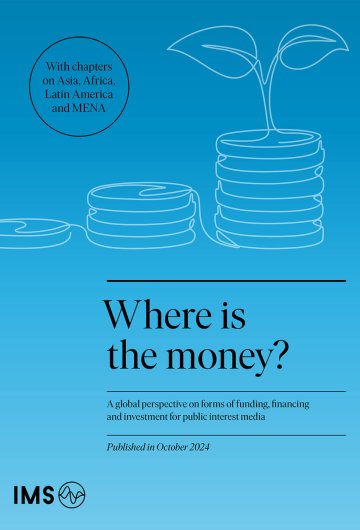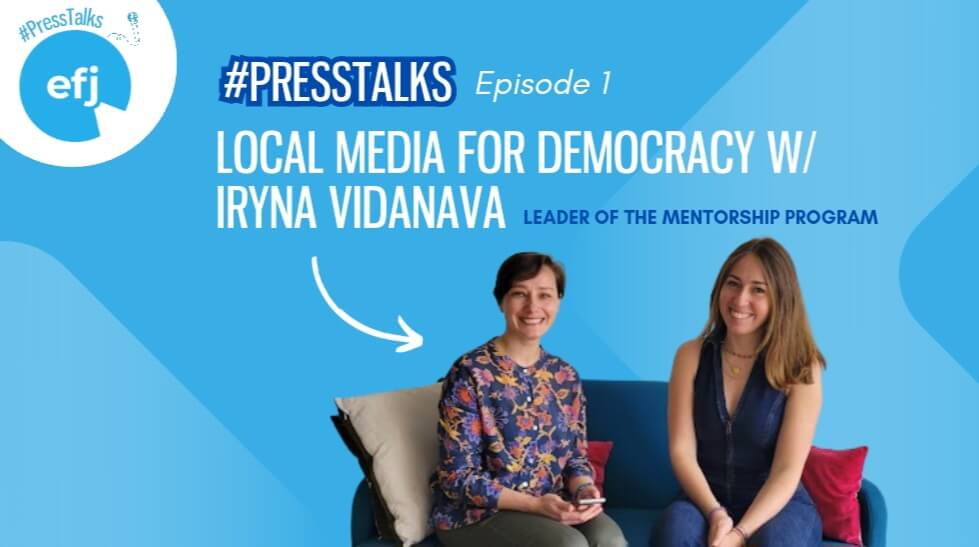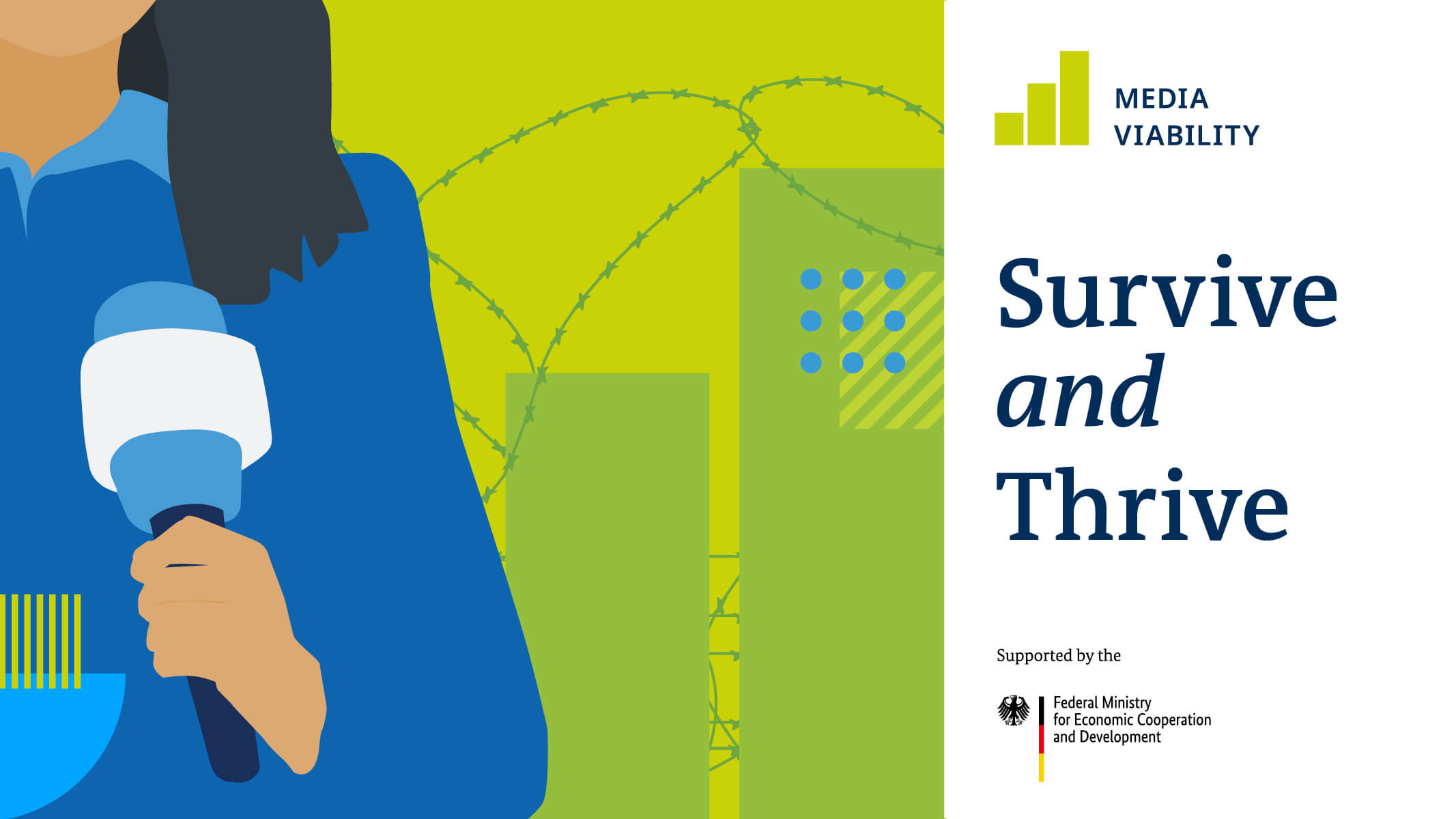We provide support based on local demand to develop capacities so media partners can reach and engage different audiences and work towards functioning business models and strengthened organisations.
Viability
What are the challenges to media viability?
At the business viability level, finding ways to survive financially is one of the most pressing concerns. This requires almost constant revision of value propositions, and in turn, opportunities to diversify. Media management skills are needed to effectively navigate the business side of operations.
At a systemic level of media viability, the market conditions for public interest media are not favourable. Funding for media remains small globally. Hostile financial conditions can be influenced at the government level, including the risk of media capture, unfair government advertising, license distribution and subsidies, little budgetary support and unfair competition. Overall, the returns on advertising in the platform economy are small.
Business viability
The capacity of a media organisation to sustain its operations and generate sufficient revenue to cover its expenses.
Media viability
The systems at societal, sectoral and organisational levels that influence the ability of media outlets to produce public interest content in a sustainable way.
How IMS works with business viability
Core support combined with expert input, capacity development and coalition building allows partners to innovate, adapt and work on ways to develop their business viability, while staying true to their mission. IMS uses the approach of action research as an umbrella for future- and solutions-oriented work. Together with partners, and through context-specific expert interventions, we seek to improve media services, develop new forms of journalism and scale innovations. IMS encourages partners to take risks and effect change in practices and to innovate through audience-centred approaches. IMS provides solutions-oriented and demand-driven expertise to support partners’ needs including in:
- professionalising their organisations by self-regulating policies and processes.
- developing management fundamentals and strategic and financial planning.
- measuring performance and assessing outcomes and key results.
- evaluating and harnessing technology including artificial intelligence.
- diversity, equity and inclusion in media.
What builds resilience in our media partners?
- Public interest journalists, content producers and media sources produce and distribute fact-based, ethical public interest content.
- Effectively developing differentiated content and products.
- Understanding and engaging audiences.
- Using data insights to make business decisions.
- Developing viable, diversified and values-driven business and revenue models.
- Inclusive and safe media organisations.
- Media organisations self-monitor and self-regulate their editorial standards and processes.
- Technology is used effectively, evaluated and limits damage.
Understanding and engaging audience
IMS works with our media partners to engage with their audiences and build communities. Where possible, media partners deploy effective strategies to understand and reflect the needs of their targeted audience segments, including marginalised and underserved communities. They work to enhance the representation of these communities in public arenas by applying the principle “nothing about me without me”. This isn’t easy and often requires renegotiating the many-to-many online environment, providing and connecting audiences. IMS supports many forms of audience research to develop effective content strategies that enable our media partners to grow existing and new audiences. The presence of staff in countries we operate in ensures that we have a comprehensive grasp of the contextual issues that impact on our partners and their audiences. This helps us to support partners in creating engaging content that is relevant to their lives.
Media develop viable operations
Public interest media partners use audience and data insights to make content and business decisions. They are clear about their outlet’s purpose, vision, mission and what sets them apart. They robust management, run inclusive teams and seek diversified business and revenue models that reflect public interest values to sustain viable operations that can source, produce and distribute public interest content. Alongside our partners – which span startups, online media, community radio stations and others – we support experiments with new business and revenue models of journalism, developing management and organisational capacities, with considerations for DEI from the onset. We support technology development though the Digital Publishing Lab and artificial intelligence capacity development.
Case study: Where is the money
Where is the money? is a report that provides a deep analysis and multi-stakeholder reflection on how public interest media in the four regions can best be supported over the next decade. The question is not whether interventions are needed to tackle the economic crisis facing journalism, but how this support should be structured.
Through contextualised research, the report offers insights into the funding landscape including opportunities, needs, challenges, gaps and recommendations in four regions: Asia, MENA, sub-Saharan Africa and Latin America.
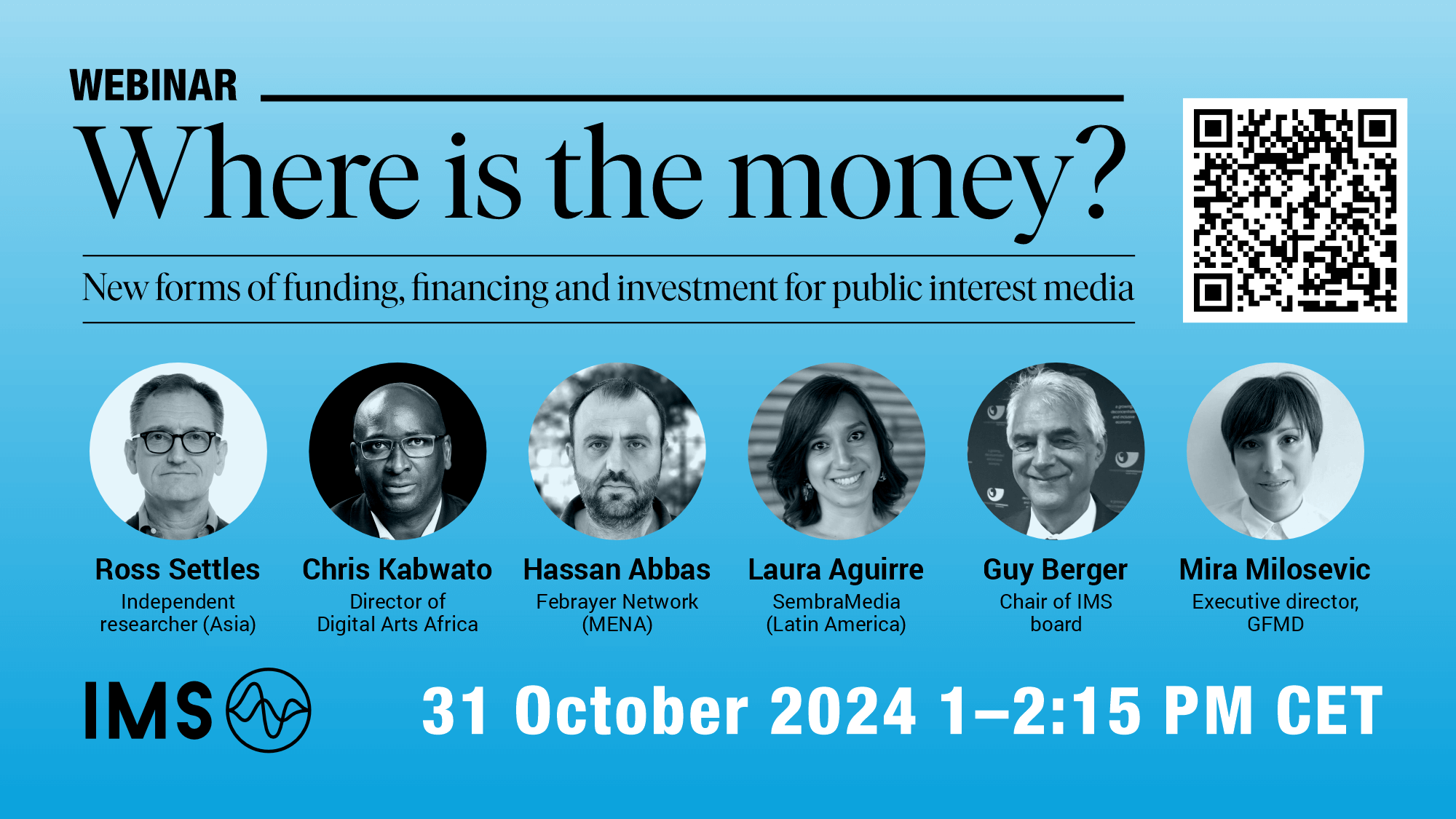
This webinar unfolds key findings from a report which takes a deep dive into regional perspectives of new forms of funding, financing and investment for public interest media. It provides a multi-stakeholder reflection in Asia, MENA, Africa and Latin America on how public interest media can best be supported over the next decade.
Case study: Local Media for Democracy
The Local Media for Democracy project was an 18-month project co-funded by the European Union and launched by a consortium of partners: the Journalismfund Europe, the Centre for Media Pluralism and Media Freedom (CMPF), IMS and the European Federation of Journalists (EFJ).
In addition to the grant programme, these organisations undertook a multifaceted programme to help struggling local, regional and community media in the news desert areas in Europe by providing financial support and organisational capacity building and conducting research to map the situation on the ground.
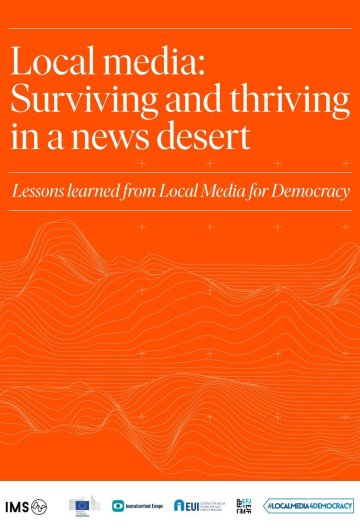
Key findings, capacity-development tools and case studies from Local Media for Democracy.
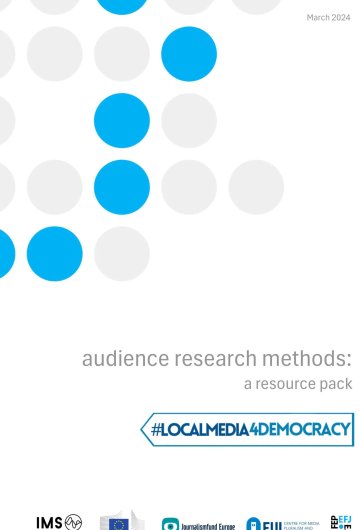
A new IMS resource pack aimed at publishers sets out how to better understand, implement and benefit from audience research.
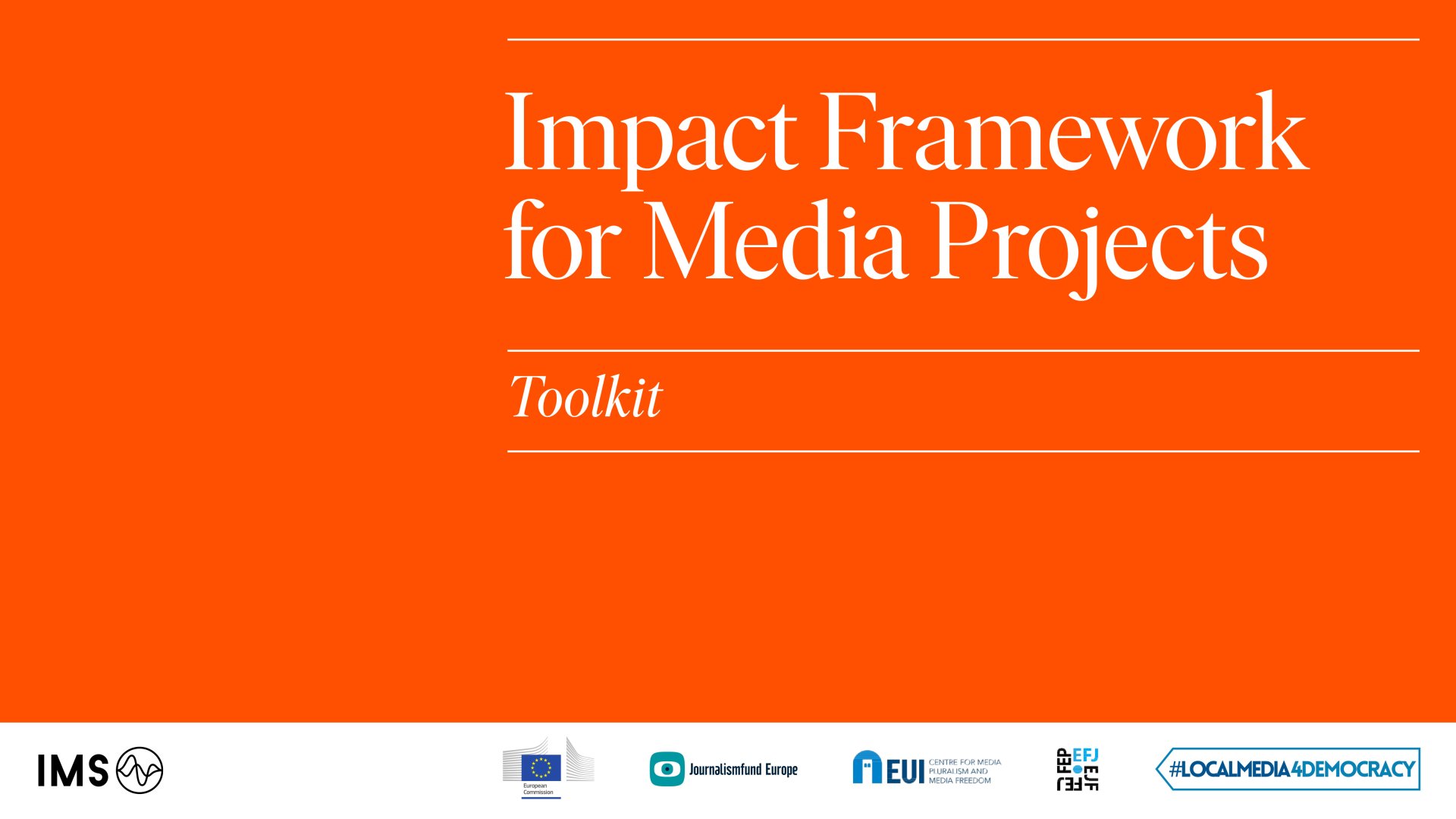
A new IMS tool has been launched to help editorial teams measure the impact of media projects based on more effective ways to define targets and track progress and results.
How IMS works with media viability
IMS is a key stakeholder in a number of initiatives through coalitions, research and advocacy work. We support initiatives to ensure media have the necessary data and insights to understand, reach and engage with audiences in the environments they operate in. IMS works to urgently speed up our sectoral knowledge and close existing gaps. This includes engagement with the Global Forum for Media Development, co-authoring the Media Viability Manifesto and publishing sector-level insights based on local knowledge.
Case study: Media Viability Manifesto
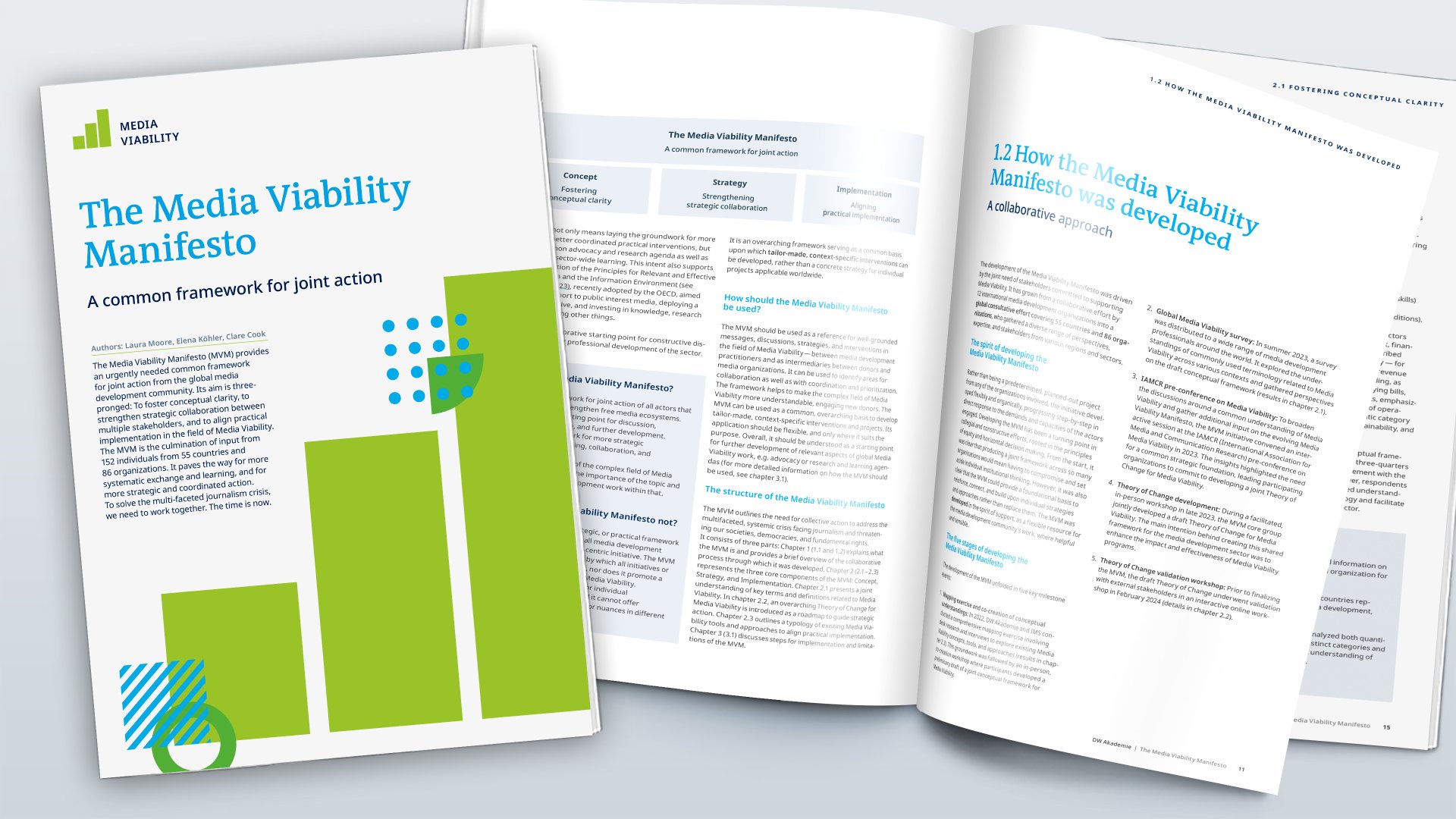
The Media Viability Manifesto is a global initiative that has been launched to shape the economics needed to safeguard the fundamental right to freedom of expression and access to information around the world. It has been set up to ensure the financial survival of journalism, including in the countries where IMS works.
It has been jointly led by IMS, DW Akademie and Free Press Unlimited with a core group of 13 organisation and developed with input from more than 150 individuals from 55 countries representing 86 organisations.
Latest viability news
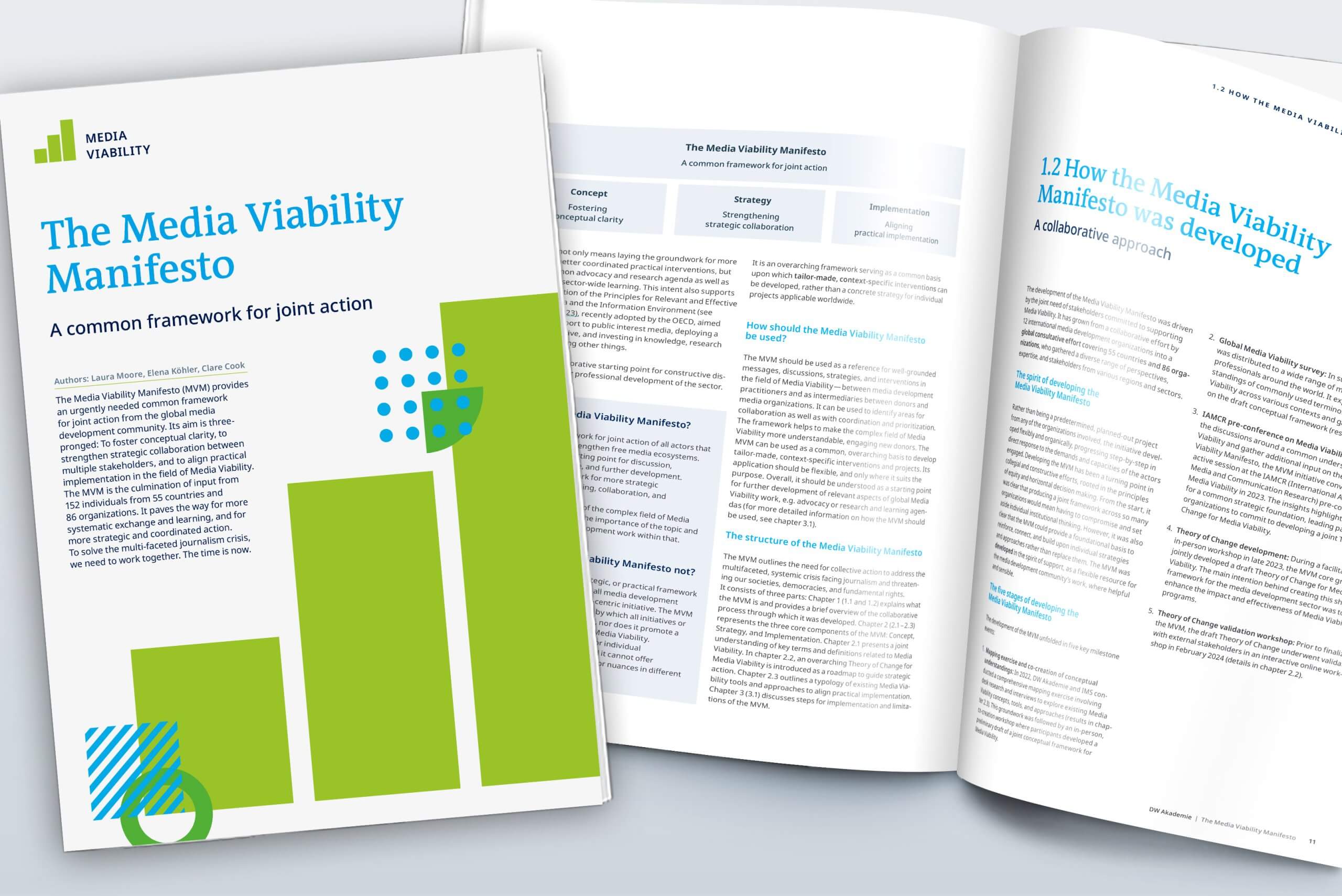
IMS launches a global effort for a better economic future for journalism
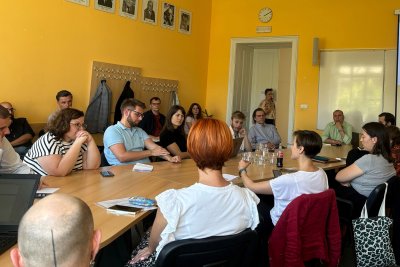
Innovating new revenue streams
To make a media business sustainable, a content strategy must be accompanied by entrepreneurial thinking. Local Media for Democracy assisted 13 media in increasing revenue streams through a grant programme and capacity building.
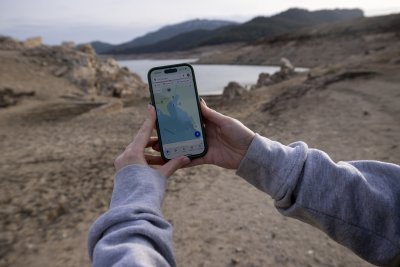
Fertilising news deserts in Europe
News deserts are areas where local outlets are no longer able to provide citizens with the information necessary to make informed decisions about issues that affect their communities. A new initiative is working to counter them.
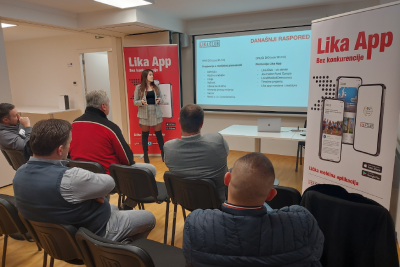
Impact recipe for strengthening democracy in local news ecosystems
This reader seeks to cover a periodical selection of media content produced by the Syria Programme’s partners on gender and sexuality.
Additional resources

Social Media Monetisation Playbook
A guide for media managers and journalists looking to monetise their social media channels and diversify their income, particularly in countries where English is not the predominant language.

Native Advertising Playbook
This publication features examples of successful native advertising models employed by dynamic independent outlets in Ukraine, Moldova, Kyrgyzstan and Tajikistan – countries with serious political, economic and media challenges.



